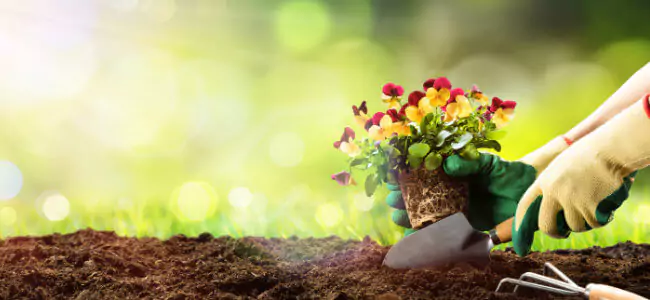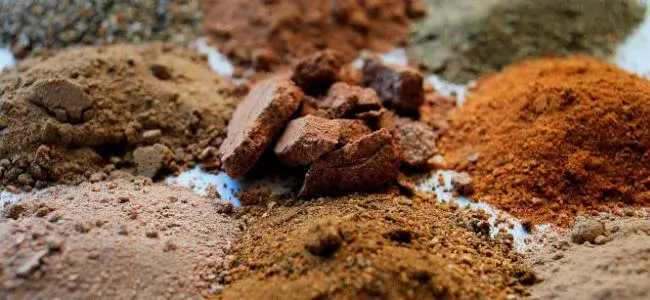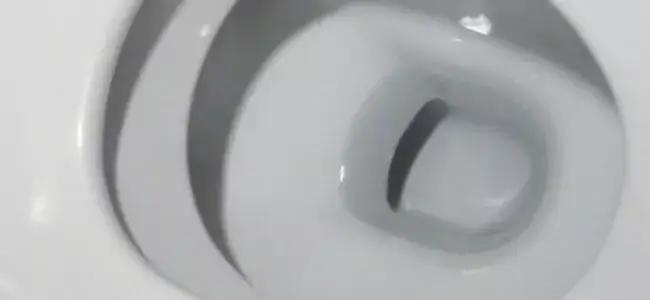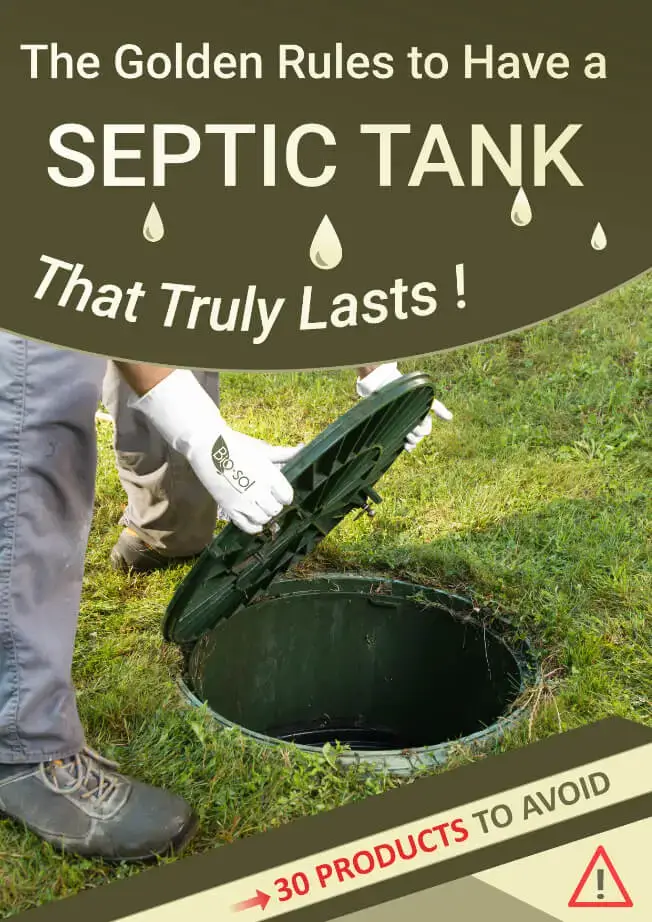Gardening tips for septic tank owners

TABLE OF CONTENTS
Planting a kitchen garden or landscaping your property is one of the easiest ways of improving the curb appeal of your property. But when you are a septic tank owner, you can’t just do any kind of gardening. Some plants have intrusive root structures that can cause real damage to the septic system. Roots can intrude on the septic tank and drain field and thereby cause irreparable damage to the system. You must, therefore, come up with a landscape design that does not interfere with the septic tank or the drain field.
Here are some important gardening tips to consider when gardening as a septic tank owner.
Plan any future gardening ahead of time if you have a septic tank
Planning is arguably the most important gardening tip. Planning any future gardening well ahead of time can save you a lot of headaches in the future. Think about any future constructions – e.g., do you intend to put up a shed, a deck or a patio? Any future construction will not only affect the layout of your garden but it could also have far-reaching consequences on your septic tank. Your septic tank and drain field area should be free of sprinkler lines, patios, storage sheds, sandboxes, or swing sets. When planning ahead, start by identifying where your septic tank and drain field areas are and then work your way around it. Also, remember to have a reserved area which is mandatory in case you need to replace the septic tank or drain field in the future for whatever reason. This reserve area is actually mandatory in some jurisdictions.
Planning ahead also entails the marking of components for easier access in the future. If you have a newer tank, chances are that it has above-ground access points that are easily recognizable. You can use a tiered planter box for camouflaging these ports because they can easily be moved to access the ports. If you have an older tank, the access ports are typically buried and can, therefore, be difficult to locate. You can use birdbaths and feeders, potted plants, sundials, lawn ornaments or sculptures to make it easier to locate the ports when its time for pumping or some other routine maintenance. Alternatively, you can install risers that are available from the local septic tank pumpers. Once you have installed the risers, you can disguise them as suggested above.
Soil and water management tips
This gardening tip will help you to avoid hydraulically overloading your system. When laying out your garden, remember to direct any downspout or any surface water runoff away from the septic tank or drain field area. The septic system is equipped to handle only the wastewater from the house and any excess water can result in hydraulic overload which is one of the causes of septic system failure. When setting up an irrigation system on your property, make sure to locate it at least 10 feet away from the edge of the septic system.
Avoiding compaction might not necessarily be a gardening tip but it is closely related to gardening. Limiting movement over the septic system will help to reduce the chances of soil compaction. When you drive heavy machinery over the septic system, the soil will compact which will make it retain less oxygen. This reduces the efficacy of aerobic bacteria which help in the treatment of wastewater in the drainfield. Apart from soil compaction, driving heavy machinery over the septic tank and drainfield can also result in the breakage of the pipes or even cracking of the septic tank. If moving heavy machinery cannot be avoided, make sure you use a tracking board to distribute the weight evenly. Apart from heavy machinery and human traffic, large animals could also cause compaction of the soil. You should therefore not allow animals to graze over the drainfield.
Gardening tips for the kitchen garden
An often-overlooked gardening tip is the application of mulch, landscape fabric, bark or plastic over the septic system. This will help to reduce air exchange while at the same time retaining any excess moisture. The addition of just a couple of inches more of soil over the drain field area can result in compaction due to the reduction of air exchange. You should, therefore, avoid planting any vegetation that would require a raised garden.
A kitchen garden will require frequent tilling of the land and irrigation. Since some of the parts of the septic system can be as shallow as six inches, the frequent digging could easily result in their damage. The irrigation of the garden can also result in hydraulic overload. A properly functioning system shouldn’t be polluting the environment but if the system fails, it will introduce disease-causing organisms into the soil which could eventually get into the vegetables in the kitchen garden. The root veggies can penetrate the soil into the drain field where they will get contaminated while the leaf veggies can get contaminated from the soil when it splashes on the leaves during irrigation. For these and many other reasons, the kitchen garden should be located away from the septic tank and drain field areas.
Landscaping tips for septic tank owners
It is advisable to stick to grass as the only plant to grow over the drainfield or over the septic tank. This is because grass has a shallow root structure and their roots are not as intrusive as some plants can be. Grass is actually good for the septic system because it will help to absorb any excess moisture and nutrients from the soil which ultimately improves the efficiency of the septic system. Grass is very resilient and will, therefore, provide a good cover all year round. You can also plant ornamental grasses. If you want to achieve a natural look, go for the unmowed meadow which you can achieve using a meadow mix that has native grasses and some shallow rooting flowers.
What to avoid planting in your garden if you have a septic tank
As a rule of thumb, any plant that is thirsty and has deep roots should not be planted around the septic system. In fact, if you are not sure about the plants you are thinking of using, you had just better stick to good old grass. Some plants like pachysandra and periwinkle have aggressive dense ground cover and they can interfere with the evaporation process. Such plants should be avoided around the septic tank. Here is a conservative list of some of the plants that you should completely avoid because of their intrusive root structures.
- Vines
- Wisteria
- Morning glory
- Bittersweet
- Hops
- Campsie
- Woody vines
- Native clematis
- Water-loving large-scale pond grasses
- Cedars
- Any kind of tree or even shrub that has an intricate rooting structure.
Do not plant any trees near the septic tank. this is because trees can spread their roots underground very easily. However, if your property is large enough, you can plant some trees away from the septic tank area but even then, stick to trees that have a vertical root structure. Also, steer clear from trees that are water-loving like birch, silver Marple, willows, beech, elm, linden, and walnut.
Conclusion
You can easily sabotage your septic system through poor landscaping habits and other ignorant land-use choices. Granted, part of the problem is the fact that landscape designers often join the part too late into the game. However, it is still possible to work with what you have to ensure you achieve good landscaping without doing any damage to your septic system. Just follow the suggested gardening tips above and your system will be healthier for longer even as you make your property more aesthetically appealing.
OUR LATEST BLOG POSTS

Strange facts about septic systems
If you are a septic system owner, you might have heard all manner of myths. For instance, there is a common myth that throwing a dead cat in the septic tank can help rejuvenate bacteria and thereby make the septic tank more effective. But is this even true? In this article, we will not only answer that […]

Soils types and their impact on septic systems
SOILS TYPES AND THEIR IMPACT ON SEPTIC SYSTEMS However good your septic system is, it depends on the right soil type to complete the process of purifying the wastewater from your home. The soil type in the drainfield area will determine how well the effluent is filtered and if the water that is sent back to the […]

Avoid flushing these if you have a septic tank
Most homeowners wrongfully assume that their toilet can serve as some sort of garbage disposal. As a result, they end up flushing all manner of things in the toilets. Some of the things that are flushed down the toilet are actually innocent mistakes because homeowners think that is the right way to dispose of the products while in other cases, it is just a don’t care attitude. Whichever the case may be, flushing some of these things can result in septic system failure and it could cost you a fortune. We have rounded up some of the commonly-flushed products that you should never flush if you have a septic system.
PERFECT! I WOULD NEED...
Discover which products are the best for your needs!You can contact us at 1-800-378-6132 (toll free) or click on the following button to access our free online evaluation.
GET A QUOTE ONLINELog in to your account
Whoops! It happens sometimes...
CREATE A NEW ACCOUNT
CONGRATS!
You are now registered and ready to go. You can add and change any of your information on your client profile.
Unfortunately, we do not ship our products to the USA at the moment.
But, if you live in the United States and would like to order them, please fill in the form below. You will then be notified as soon as they are available in your country.
Thank you for your understanding!
Malheureusement, nous n’expédions pas nos produits en France pour le moment.
Mais, si vous êtes résident français et aimeriez les commander, remplissez s’il vous plaît le formulaire ci-dessous. Nous pourrons ainsi vous aviser aussitôt qu’ils seront disponibles dans votre pays.
Merci de votre compréhension!

-
30 products to avoid
-
What to replace them with
-
And everything you should know about your septic system
DOWNLOAD THIS FREE EBOOK!
Which email address should we send it to?


